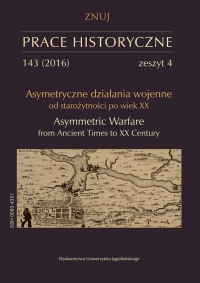Rola arcybiskupa Jana z Sultanii w stosunkach dyplomatycznych pomiędzy Mongołami a Europą Zachodnią na przełomie XIV i XV w.
The role of Archbishop John of Sultania in the diplomatic relations between the Mongols and Western Europe at the turn of 14th and 15th centuries
Author(s): Łukasz BurkiewiczSubject(s): Christian Theology and Religion, Diplomatic history, 13th to 14th Centuries, 15th Century
Published by: Wydawnictwo Uniwersytetu Jagiellońskiego
Keywords: Sultania; Archbishop John of Sultania; Franciscans; Dominicans; Timur; Bayezid;
Summary/Abstract: John, the eighth archbishop of Soltaniensis, that is Persian Sultania, is one of the most mysterious figures in the Mongol-European relations at the turn of 14th and 15th centuries. He devoted his life not only to God but also to diplomacy, travelling and writing, and the mystery surrounding his life has been increased by numerous errors in academic attempts to identify him. Undoubtedly, he enjoyed an exceptional position in Timur’s court and was called the Mongol ruler’s “special friend.” He was the initiator of the mission to the European rulers, which began in 1402, as he planned to evangelize the Chagatai Khanate with the support of the West. He hoped that on his mission he would manage to recruit volunteers to support his missionary activities in the East. Trade and the colonies established by Western merchants along the trade routes in the East were a pretext and a natural incentive for missionary activities, and that is why they were discussed in correspondence between Timur and European rulers. However, the outcome of John’s mission was not significant – the results were merely superficial and he did not manage to change the negative perception of Timur in Europe.
Journal: Prace Historyczne
- Issue Year: 144/2017
- Issue No: 1
- Page Range: 25-42
- Page Count: 18
- Language: Polish

